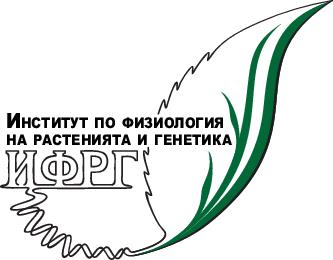Institute of Plant Physiology and Genetics
 The mission of the Institute of Plant Physiology and Genetics (IPPG) involves conducting fundamental and applied research in the field of plant biology which will have a key role to play in solving global problems such as feeding the population under the conditions of adverse climatic changes.
The mission of the Institute of Plant Physiology and Genetics (IPPG) involves conducting fundamental and applied research in the field of plant biology which will have a key role to play in solving global problems such as feeding the population under the conditions of adverse climatic changes.
The Institute of Plant Physiology and Genetics was formed on 1 July 2010 following the merger of the Institute of Plant Physiology “Acad. M. Popov” and the Institute of Genetics “Acad. Doncho Kostov”, by decision of the 36th session of the General Assembly of BAS from 23.03.2010.
Research and applied activity
The priorities of IPPG are as follows:
- Creation of new plant species for the plant-breeding industry, food and pharmaceutical industry, public health and environmental protection;
- Investigations on the physiological and biochemical mechanisms of regulation of plant metabolism and defense mechanisms in plants, contributing to overcoming unfavorable environmental influences and to improving plant resistance;
- Studies on the organization and functioning mechanisms of hereditary structures in order to characterize and enrich genetic resources and utilize them for the improvement of economically important plant species
IPPG is working in the following areas:
- Research field “Molecular biology and genetics”
- Research field “Experimental algology”
- Research field “Plant ecophysiology”.
Results have been achieved in the field of:
- Creation of new plant forms with valuable economic and biological characteristics such as resistance to abiotic and biotic stress, improved food and taste qualities and higher productivity;
- Studying the physiological and biochemical bases of metabolism regulation and protective mechanisms in plants helping to overcome adverse environmental impacts and increase their resistance;
- Studying the organization and functioning mechanisms of hereditary structures in order to characterize and enrich genetic resources and their use for the improvement of economically important, for the country, plant species.
Under contractual tasks, facilities for the cultivation of spirulina and chlorella have been built. The successful operation of these facilities is a prospect for the resumption of the industrial production of micro-algae biomass in Bulgaria.
Over the years, Academician Emanuil Karanov, corr.-member. Stefan Daskalov, corr.-member Atanas Mehandzhiev and Prof. Dr. Jivko Danailov – Doctor Honoris Causa of the Russian State Agrarian University – Moscow Timiryazev Agricultural Academy worked at the institute.
Educational activity
Accredited Doctoral Programs:
- Biochemistry
- Genetics
- Plant physiology.
Number of PhD Students – 6.

